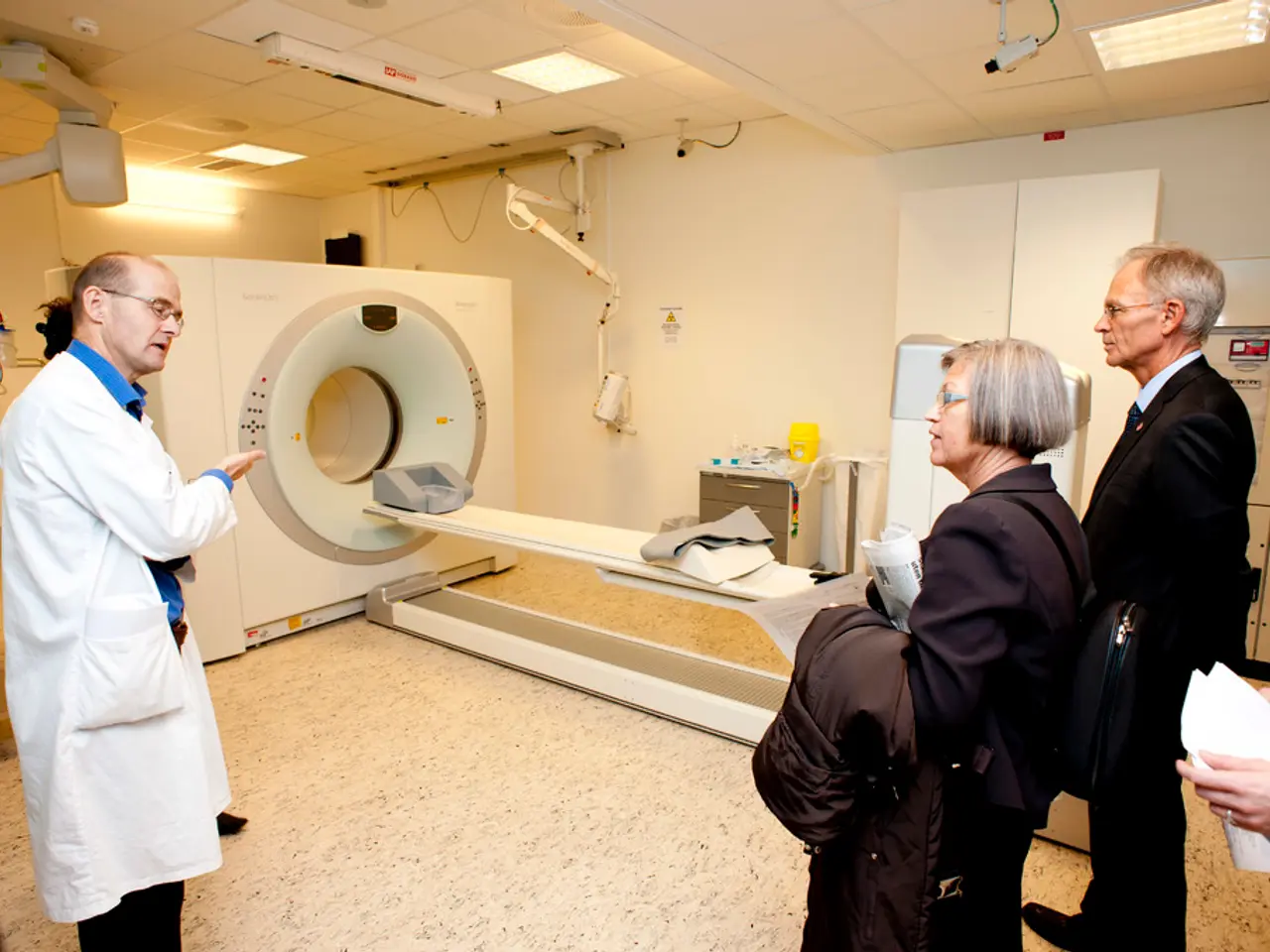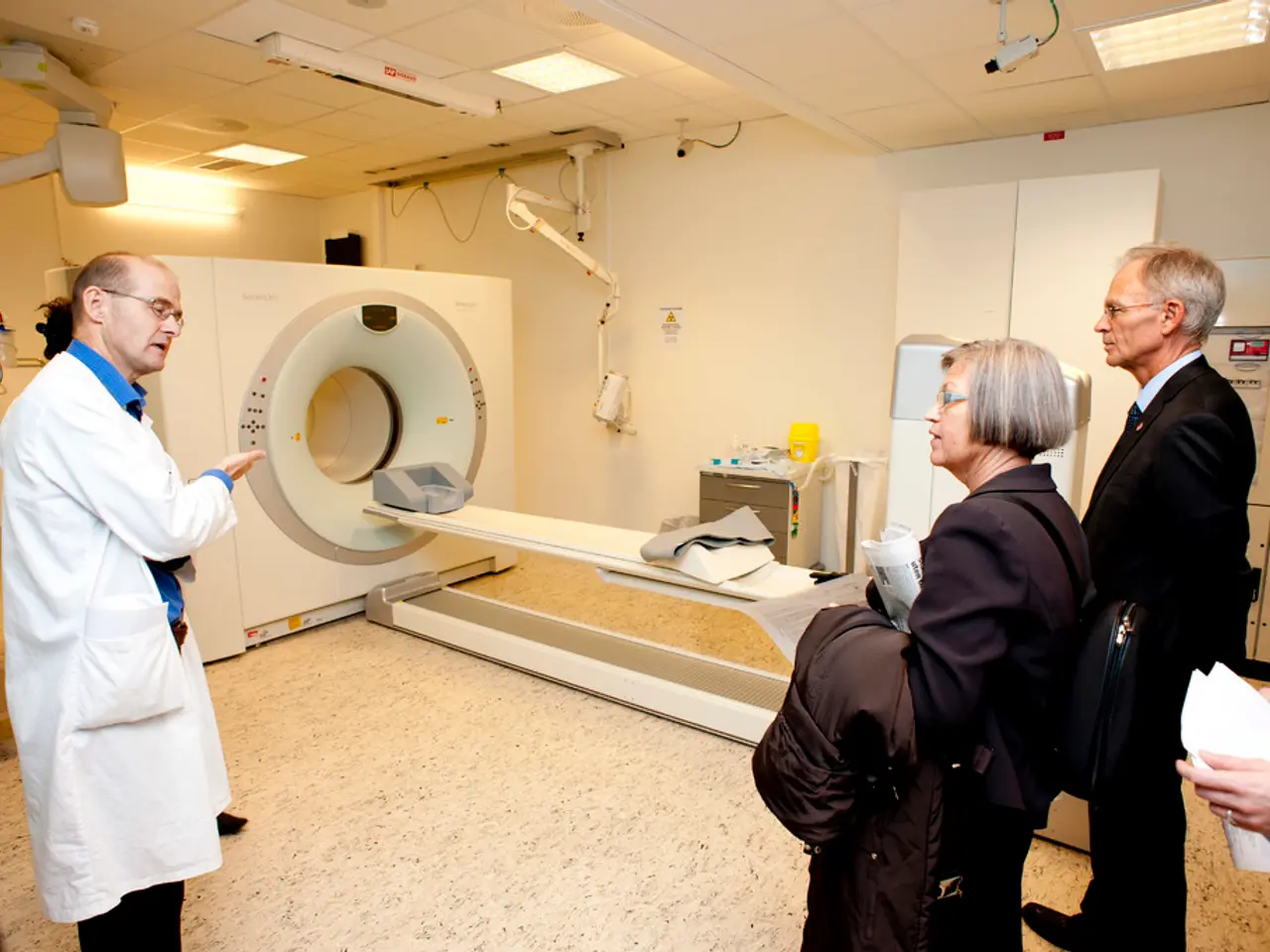Electronic patient records may face an imminent crisis, according to a caution issued by the medical profession. - Imminent Collapse Predicted in Digital Patient Health Records by Medical Experts
The Association of Family Physicians in Germany has issued a warning about the potential "crash landing" in the implementation and use of electronic patient records (EPR), citing several challenges that have emerged since their nationwide introduction in April.
The EPR, initially offered on a voluntary basis since 2021, has been likened to an "electronic shoe box full of papers," due to its current state of disorganisation and lack of user-friendly features. Clinicians have expressed dissatisfaction with the complex registration process and faulty technology, making it difficult to rely on the completeness of the data in the EPR.
The challenges extend to implementation difficulties and clinician burden, mandatory sharing and access issues, data security concerns, and criticisms about the EPR's usefulness. New regulations requiring the sharing of electronic protected health information (ePHI) with other providers have raised concerns, particularly regarding the integration of billing records into the EHR system. Security incidents involving patient data have been reported, leading to breaches that undermine trust in the electronic record systems.
Innovations like ambient AI are promising to alleviate some issues, but the broader EPR systems still face criticism for not delivering expected efficiencies and improvements in care coordination. The Association's warning underscores the need for significant improvements in usability, interoperability, regulatory compliance, and security to ensure that the EPR effectively meets clinicians' and patients' needs, thus maximising its potential benefits.
The concern is that health insurers are not taking an active role, particularly in patient education. It's rare for practices not to have problems accessing patient records in a week. Furthermore, a small fraction of insured persons are actively using the EPR, and only a small proportion of patients have unlocked the record for their own access.
The Bavarian Chamber of Dentists has also criticised the current state of the EPR, with Chamber President Frank Wohl stating that its lack of use is no wonder. The EPR does not have a full-text search feature, and there are no uniform categories for filling the record, such as "findings," "reports," or "doctor's letter."
Despite these challenges, the EPR does have the capacity to store the entire medical history of patients, including treatments, operations, preventive examinations, X-rays, and prescribed medications. However, without significant improvements and a more active role from health insurers in patient education, the potential benefits of the EPR may remain unrealised.
Markus Beier, from the Association of Family Physicians, has criticised past shortcomings, stating that a large and coordinated information campaign was needed but not provided. The Association's warning serves as a call to action for all stakeholders involved in the implementation and use of the EPR to address these concerns and work towards a more effective and secure system for all.
The Association of Family Physicians' warning emphasizes the need for EC countries to prioritize vocational training for clinicians in effectively managing electronic patient records (EPR), considering the complexities and inefficiencies currently faced. A comprehensive understanding of science, technology, and health-and-wellness, including medical-conditions, will be essential in developing user-friendly EPRs, ensuring data security, and leveraging innovations such as ambient AI for improved care coordination.




